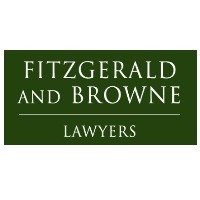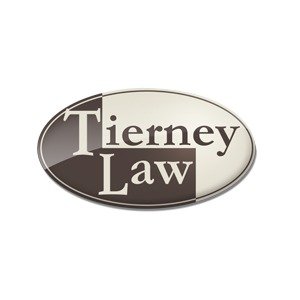Best Real Estate Lawyers in Hobart
Share your needs with us, get contacted by law firms.
Free. Takes 2 min.
Free Guide to Hiring a Real Estate Lawyer
List of the best lawyers in Hobart, Australia
Australia Real Estate Legal Questions answered by Lawyers
Browse our 2 legal questions about Real Estate in Australia and read the lawyer answers, or ask your own questions for free.
- Contract law
- Can the previous owner of a business be classed as neglected if he didn't do the maintenance on the referaction units before selling the business to me
-
- Cancel a property contract
- I have cancelled a property contract (after 3 years) and asked for the refund I am entitled to. How long after cancellation should the refund be paid?
-
Lawyer answer by RI & Associates
Could you let me know if the contract was for a property based in Pakistan? If it's in Pakistan, then I can advise on the course of action. Regards, Rana Ahmad
Read full answer
About Real Estate Law in Hobart, Australia
Real estate law in Hobart, like the rest of Australia, revolves around the transactions, ownership, and usage of land and property. The sector is governed by a combination of federal, state, and local laws to ensure fair dealings and legal compliance. Hobart, with its unique geographical and economic characteristics, features a diverse property market, offering everything from residential homes to commercial real estate and investment opportunities. Transacting in real estate here requires navigating the Tasmanian legal system to ensure that all formalities are met and the interests of buyers, sellers, and agents are protected.
Why You May Need a Lawyer
Legal assistance is often sought in the real estate field to safeguard the interests of the parties involved and to ensure that all transactions comply with legal requirements. Here are some common situations where legal help may be required:
- Buying or selling property to ensure proper contract use and compliance with real estate laws.
- Handling disputes between landlords and tenants, including evictions and lease disagreements.
- Resolving boundary disputes or issues related to property rights and easements.
- Addressing concerns with zoning laws and land use restrictions.
- Assisting in estate planning, including wills and the transfer of property titles.
- Managing situations involving property fraud or deceptive practices.
Local Laws Overview
In Hobart, real estate laws are influenced by various statutes including the Sale of Land Act, Residential Tenancy Act, and Planning and Environment Regulations. Key aspects include:
- Property Transfer Requirements: Mandates clear procedures for title transfer and settlement procedures.
- Tenancy Laws: Govern agreements between landlords and tenants, covering lease contracts, rent payments, and tenant rights.
- Zoning and Planning Regulations: Specify land use to maintain the city's aesthetic and functional layout, affecting property development.
- Building Codes: Ensure safety and compliance in construction practices affecting residential and commercial buildings.
Frequently Asked Questions
What are the steps to buying a house in Hobart?
The process typically involves engaging a real estate agent, finding a suitable property, making an offer, conducting due diligence and inspections, exchanging contracts, and finally, settlement.
What is conveyancing?
Conveyancing is the legal process of transferring property ownership from the seller to the buyer, typically involving preparing and filing requisite legal documents.
Are there any restrictions on foreign property ownership in Hobart?
Foreigners must seek approval from the Foreign Investment Review Board before purchasing residential property in Australia, including Hobart.
What happens if there is a boundary dispute?
Boundary disputes are often resolved by surveying the property to determine legal boundaries, but legal assistance may be required to mediate or escalate the issue.
How do I know if a property is under heritage protection?
Heritage protection status can be verified with the local council’s planning department. Properties under heritage protection may have restrictions on modifications.
What should landlords include in a lease agreement?
A lease agreement should outline the terms of tenancy, including rent amount, payment terms, security deposit, maintenance responsibilities, and termination conditions.
How can I resolve a rental dispute?
Rental disputes may be resolved through negotiation, mediation via Tasmania's Residential Tenancy Commissioner, or legal proceedings if necessary.
What are my rights as a tenant in Hobart?
Tenants have rights regarding privacy, property maintenance, and lease termination, among others, as outlined in the Residential Tenancy Act.
What is stamp duty, and who pays it?
Stamp duty is a government tax imposed on property transactions, payable by the buyer. It varies based on property value and type.
Can I subdivide my property in Hobart?
Subdivision of land is subject to planning permissions and zoning laws. Consulting the local council is necessary to understand specific requirements and feasibility.
Additional Resources
For more information and assistance, consider consulting the following resources:
- Tasmanian Department of Justice: Provides information on property and land titles.
- Consumer, Building and Occupational Services (CBOS): Offers guidance on tenancy laws and dispute resolution.
- Law Society of Tasmania: Can help you find a qualified real estate lawyer.
- Local Council’s Planning Department: Offers information on zoning, development applications, and heritage listings.
Next Steps
If you need legal assistance regarding a real estate issue in Hobart, consider taking the following steps:
- Identify the specific legal issue or advisory need you have.
- Gather all relevant documents and information related to your property or transaction.
- Contact a qualified real estate lawyer or legal advisor specializing in Tasmanian property law.
- Schedule a consultation to discuss your situation, where the lawyer can provide guidance tailored to your needs.
- Proceed with the legal advice given and stay informed about your rights and obligations in matters concerning real estate.
Lawzana helps you find the best lawyers and law firms in Hobart through a curated and pre-screened list of qualified legal professionals. Our platform offers rankings and detailed profiles of attorneys and law firms, allowing you to compare based on practice areas, including Real Estate, experience, and client feedback.
Each profile includes a description of the firm's areas of practice, client reviews, team members and partners, year of establishment, spoken languages, office locations, contact information, social media presence, and any published articles or resources. Most firms on our platform speak English and are experienced in both local and international legal matters.
Get a quote from top-rated law firms in Hobart, Australia — quickly, securely, and without unnecessary hassle.
Disclaimer:
The information provided on this page is for general informational purposes only and does not constitute legal advice. While we strive to ensure the accuracy and relevance of the content, legal information may change over time, and interpretations of the law can vary. You should always consult with a qualified legal professional for advice specific to your situation.
We disclaim all liability for actions taken or not taken based on the content of this page. If you believe any information is incorrect or outdated, please contact us, and we will review and update it where appropriate.
Browse real estate law firms by service in Hobart, Australia
Hobart, Australia Attorneys in related practice areas.
















